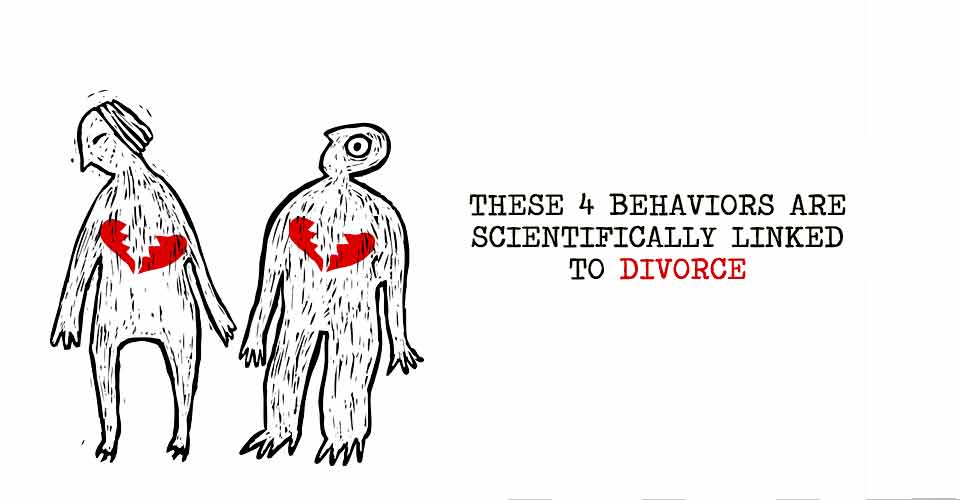Nobody enters into a marriage planning to get divorced – and somehow, nearly half of American partnerships end this way. Most often, we attribute separation to the simple and unacceptable behaviors that we can easily understand. She slept with a co-worker. He didn’t want children, and she did. She was too focused on her career. He spent too extravagantly. He travelled too often. She drank too much. These surface behaviors are significant, but they are rarely the root of the problem.
More often, the real death of a marriage comes in the way that a couple relates to one another on a daily basis. The small lies and cold distances between two partners can compound over time. Usually it happens when we are not even paying attention. We draw farther and farther away from our partner each day. Finally, we wake up alone – and we may realize we’ve been living that way for awhile.
According to marital expert John Gottman, divorce is rarely predicted by a wandering eye or a spending problem. He was able to pinpoint the four behaviors listed below as the patterns that most often lead to the end of a marriage:
1. Lack of Responsiveness
Listen to your partner with your whole mind and body. Make it an active process. Acknowledge their needs. Respond to their thoughts and feelings with your own. You don’t have to agree with your partner all the time. You just need to engage with them. Ignoring your partner will make them feel unimportant and unappreciated. They may respond by choosing to withdraw into their own unhappiness, becoming disconnected from you. Make it a priority to build your loved one up and draw them close.
2. Absence of Affection
Most relationships start out heavily affectionate. We hold hands in public. We kiss. We keep up an active sex life. We flirt throughout the workday. Unfortunately, this joy and enthusiasm can fade over time. In the context of a busy adult life, showing affection for your spouse can easily take a backseat to other responsibilities. Don’t let it! When you stop receiving affection from your partner, you will begin to feel taken for granted. When this happens, our self-esteem drops and our connection starts to go dead. This is the beginning of the end.
3. Negativity Outweighing Positivity
It is important to communicate our negative feelings, rather than bottling them up. The problem comes when we get in the habit of expressing only our negative feelings. We need the balance that comes from praise and gratitude. For every criticism you direct towards your partner, praise them twice. Notice when they respond to your feedback. Thank them with warmth and sincerity. Your relationship should feel supportive, and not combative.
4. Lack of Communication
The first behavior we discussed involves being receptive to your partner’s feelings. This one is the same issue – communication – from the opposite side. Stonewalling is the habit of withdrawing from a conflict rather than working it out. Essentially, one partner emotionally shuts down instead of rising to face the problems in the marriage. This leaves the other frustrated, confused, and utterly alone. Stonewalling may feel like a safe way to avoid conflict. In reality, it is just the opposite.
Using these four factors, as well as some others, researchers at the University of Washington were able to predict divorce with an astonishing 83% accuracy. If you saw your own marriage in this list, don’t panic – but do take notice. It takes two to end a marriage. It also takes two to save one. If you and your partner are both still committed, it is not too late to reconnect and restructure your relationship in a healthy way. Find a marriage counselor in your area and get to work. You’ll be glad you did.



